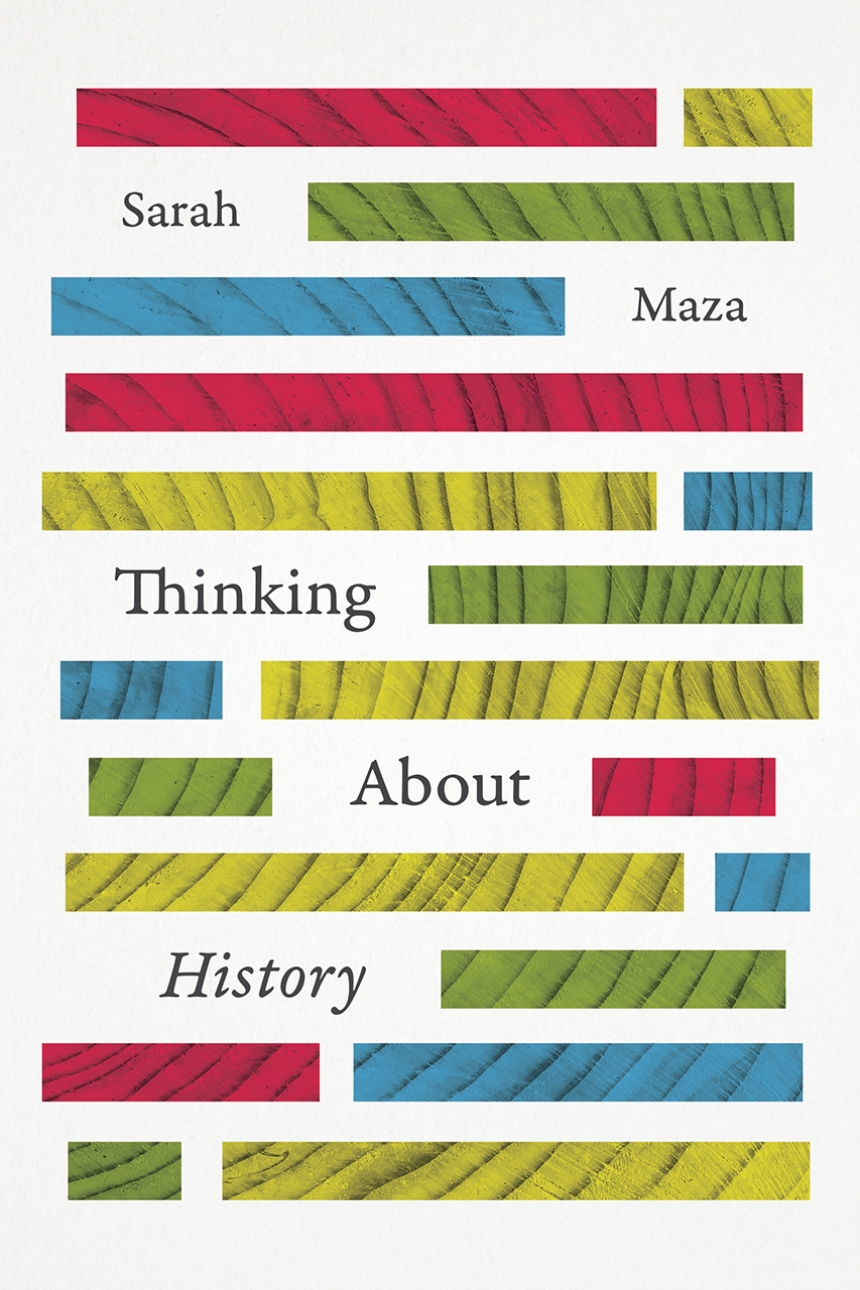Thinking About History
What distinguishes history as a discipline from other fields of study? That's the animating question of Sarah Maza’s Thinking About History, a general introduction to the field of history that revels in its eclecticism and highlights the inherent tensions and controversies that shape it.
Designed for the classroom, Thinking About History is organized around big questions: Whose history do we write, and how does that affect what stories get told and how they are told? How did we come to view the nation as the inevitable context for history, and what happens when we move outside those boundaries? What is the relation among popular, academic, and public history, and how should we evaluate sources? What is the difference between description and interpretation, and how do we balance them? Maza provides choice examples in place of definitive answers, and the result is a book that will spark classroom discussion and offer students a view of history as a vibrant, ever-changing field of inquiry that is thoroughly relevant to our daily lives.
Designed for the classroom, Thinking About History is organized around big questions: Whose history do we write, and how does that affect what stories get told and how they are told? How did we come to view the nation as the inevitable context for history, and what happens when we move outside those boundaries? What is the relation among popular, academic, and public history, and how should we evaluate sources? What is the difference between description and interpretation, and how do we balance them? Maza provides choice examples in place of definitive answers, and the result is a book that will spark classroom discussion and offer students a view of history as a vibrant, ever-changing field of inquiry that is thoroughly relevant to our daily lives.
Read the introduction. An audiobook version is available.
264 pages | 6 x 9 | © 2017
History: General History
Reviews
Table of Contents
Introduction
1 The History of Whom?
History from Above: “Great Men” and a Few Women
Social History and Quantification
E. P. Thompson’s Historical Revolution
Resistance and Agency
Power and the Private Sphere
2 The History of Where?
How National History Became Unnatural
Oceans, Middle Grounds, Borderlands
The Rise of Global History
Displacing Euro-America
3 The History of What?
From Ideas to Things
The Changing History of Ideas
Thomas Kuhn’s Scientific Revolution
Science in Historical Context
The New History of Things
Nature and Other Nonhuman Actors
4 How Is History Produced?
From Chroniclers to Academics
Popular and Public History
Orthodoxy and Revisionism: How Debate Shapes History
Do Sources and Archives Make History?
5 Causes or Meanings?
Causality and History
In Search of Laws and Patterns: Social Science History and Comparison
Marxism and the Annales School
Multicausal History and the Return of the Event
In Search of Meaning: Microhistory
Clifford Geertz, Michel Foucault, and the “New Cultural History”
6 Facts or Fictions?
The Rise and Fall of Objectivity
Postmodernism and History: Radical Skepticism and New Methods
Everything Is Constructed
Barbarians at the Gate
Distortion or Imagination: Where Do We Draw the Line?
Conclusion
Acknowledgments
1 The History of Whom?
History from Above: “Great Men” and a Few Women
Social History and Quantification
E. P. Thompson’s Historical Revolution
Resistance and Agency
Power and the Private Sphere
2 The History of Where?
How National History Became Unnatural
Oceans, Middle Grounds, Borderlands
The Rise of Global History
Displacing Euro-America
3 The History of What?
From Ideas to Things
The Changing History of Ideas
Thomas Kuhn’s Scientific Revolution
Science in Historical Context
The New History of Things
Nature and Other Nonhuman Actors
4 How Is History Produced?
From Chroniclers to Academics
Popular and Public History
Orthodoxy and Revisionism: How Debate Shapes History
Do Sources and Archives Make History?
5 Causes or Meanings?
Causality and History
In Search of Laws and Patterns: Social Science History and Comparison
Marxism and the Annales School
Multicausal History and the Return of the Event
In Search of Meaning: Microhistory
Clifford Geertz, Michel Foucault, and the “New Cultural History”
6 Facts or Fictions?
The Rise and Fall of Objectivity
Postmodernism and History: Radical Skepticism and New Methods
Everything Is Constructed
Barbarians at the Gate
Distortion or Imagination: Where Do We Draw the Line?
Conclusion
Acknowledgments
Index
